It Starts In Paris.
It starts in Paris.
“You can’t steal things just because you like them,” Sam tells Bucky, feeling innately that this is a losing battle, and Bucky cocks his head to the side, considers Sam very thoughtfully.
“Really,” he says. “I’m stealing you, aren’t I?”
hello, here is that long painfully slow-burning Sam-centric fic that’s been killing me for the last month. 33.5k words spanning from post-Winter Soldier to… well, to A Time. featuring art theft, meaningful conversation in hotel rooms, burning undercurrents of tension, Steve Rogers being Steve Rogers, moments of softness and breathless stillness. have fun. I’m dead.
More Posts from Lune-versatile and Others
Hello there!
I'm meaning to write a story for a long time (I've kind of brilliant ideas for the plot and stuff) but i can't get words out; half of the time I get confused about which pov will suit the story or sometimes it just doesn't seem appealable.
How can I go about it?
Have Plot Ideas, Can't Get the Words Out
When you have ideas for the story but you sit down to write it and it goes nowhere.... that's a good sign that you need to spend some time doing some planning and plotting. In fact, you may need to take some time to make sure you understand plot and story structure before you start to plan. Here are some posts to get you started!
Basic Story Structure Beginning a New Story How to Move a Story Forward Choosing a Point-of-View Choosing a POV Character Among Many Interesting Viewpoints Guide: How to Rekindle Your Motivation to Write Getting Unstuck: Motivation Beyond Mood Boards & Playlists Have Plot, Can’t Write
Good luck with your story! ♥
•••••••••••••••••••••••••••••••••
Have a writing question? My inbox is always open!
Visit my FAQ
See my Master List of Top Posts
Go to ko-fi.com/wqa to buy me coffee or see my commissions!
Writing Notes: Outline

Outline - a skeletal representation of the sequence of the main ideas in your essay.
The sequence of ideas/topics also serves as a guide for the reader(s) of your paper.
2 Purposes of an Outline
For You as a Writer (this is the “working outline”)
You may draft a working outline in order to organize the sections of your paper as you list the major ideas/topics you plan to discuss.
You may add minor topics and supporting details as your research continues.
In the research and drafting processes, you may need to revise the information included in your working outline as new information comes to light.
For Your Instructor (this is the “final outline”)
The most important aspect of the final outline is that it is truly representative of your actual paper.
If a topic is in your outline but not adequately discussed in your paper, revision is necessary.
To serve as a guide for the reader, the final outline must accurately reflect the content of your paper.
About the Working Outline
The working outline does not need to be written in any specific format.
It is for your own use, an informal rough draft of tentative information that you may use or discard later.
You may write a working outline in whatever form seems most helpful for you.
By the time you have finished your research and begun your paper, you should have a nearly complete outline to edit and use as your final outline.
About the Formal Outline
The standard format for a formal outline includes large Roman numerals for the main headings, capital letters for subtopics and Arabic numerals for the sub-subtopics.
To find specific information regarding correct spacing and alignment, consult your university's handbook.
Example
OUTLINE
Thesis Statement: There are benefits as well as drawbacks to purchasing a home.
I. Benefits of purchasing a home
A. Financial investment B. Personal privacy
II. Drawbacks to purchasing a home
A. Financial commitment B. Costly maintenance
Things to Consider About Outlines
Thesis Statement
Most outlines begin with the thesis statement, aligned to the left and placed directly below the heading (Title) of your outline.
Sentence Outline OR Topic Outline
Consistency is the key to writing your outline.
If your outline is in sentence form, all parts of it (major topics, minor topics, supporting details) must be in sentence form.
If your outline is written in words, and phrases, all of it must be in that form.
The main point to remember is that your outline will be one or the other, all sentences or all words and phrases, not a combination of both.
Paired Headings
If you have a I., you must have at least a II. If you have an A., you must have a B.
If you have a 1., you must have a 2.
There is never a division without at least two headings, although you may have several more than two.
Comparable Numerals or Letters
Like headings are also of equal significance to your paper.
The B or C following an A is of comparable importance to the A.
If the paired headings do not seem aligned, one being a minor point and the other a major area of discussion, you may need to move headings and subheadings around in the working outline to create smooth transition of ideas and information.
Coherence
Your outline will reflect the progression of ideas in each section of your paper, from major topics to minor topics to supporting details or further information.
In organizing your outline, you should find that you have grouped topics in a logical order, and you will be able to see at a glance if you have done so.
Source ⚜ Writing Notes & References
Are you still stuck for ideas for National Novel Writing Month? Or are you working on a novel at a more leisurely pace? Here are 102 resources on Character, Point of View, Dialogue, Plot, Conflict, Structure, Outlining, Setting, and World Building, plus some links to generate Ideas and Inspiration.
CHARACTER, POINT OF VIEW, DIALOGUE
10 Days of Character Building
Name Generators
Name Playground
The Universal Mary Sue Litmus Test
Priming the idea pump (A character checklist shamlessly lifted from acting)
How to Create a Character
Seven Common Character Types
Handling a Cast of Thousands – Part I: Getting to Know Your Characters
It’s Not What They Say . . .
Establishing the Right Point of View: How to Avoid “Stepping Out of Character”
How to Start Writing in the Third Person
Web Resources for Developing Characters
What are the Sixteen Master Archetypes?
Character: A compilation of guidance from classical and contemporary experts on creating great dramatic characters
Building Fictional Characters
Fiction Writer’s Character Chart
Character Building Workshop
Tips for Characterization
Fiction Writer’s Character Chart
Villains are People, Too, But . . .
Top 10 Tips for Writing Dialogue
Speaking of Dialogue
Dialogue Tips
Advantages, Disadvantages and Skills (character traits)
How to Write a Character Bible
Character Development Exercises
All Your Characters Sounds the Same — And They’re Not a Hivemind!
Medieval Names Archive
Sympathy Without Saintliness
Writing the Other: Bridging Cultural Difference for Successful Fiction
Family Echo (family tree website)
Interviewing Characters: Follow the Energy
100 Character Development Questions for Writers
Behind the Name
Lineage Chart Layout Generator
PLOT, CONFLICT, STRUCTURE, OUTLINE
How to Write a Novel: The Snowflake Method
Effectively Outlining Your Plot
Conflict and Character within Story Structure
Outlining Your Plot
Ideas, Plots & Using the Premise Sheets
How to Write a Novel
Creating Conflict and Sustaining Suspense
Plunge Right In . . . Into Your Story, That Is!
Fiction Writing Tips: Story Grid
Tips for Creating a Compelling Plot
Writer’s “Cheat Sheets”
The Thirty-six (plus one) Dramatic Situations
The Evil Overlord Devises a Plot: Excerpt from Stupid Plotting Tricks
Conflict Test
What is Conflict?
Monomyth
The Hero’s Journey: Summary of the Steps
Outline Your Novel in Thirty Minutes
Plotting Without Fears
Novel Outlining 101
Writing the Perfect Scene
Fight Scenes 101
Basic Plots in Literature
One-Page Plotting
The Great Swampy Middle
SETTING, WORLD BUILDING
Magical World Builder’s Guide
I Love the End of the World
World Building 101
The Art of Description: Eight Tips to Help You Bring Your Settings to Life
Creating the Perfect Setting – Part I
Creating a Believable World
An Impatient Writer’s Approach to Worldbuilding
Fantasy Worldbuilding Questions
Setting
Character and Setting Interactions
Creating Fantasy and Science Fiction Worlds
Creating Fantasy Worlds
Questions About Worldbuilding
Maps Workshop — Developing the Fictional World Through Mapping
World Builder Projects
IDEAS, INSPIRATION
Quick Story Idea Generator
Solve Your Problems Simply by Saying Them Out Loud
Busting Your Writing Rut
Writing Inspiration, or Sex on a Bicycle
Creative Acceleration: 11 Tips to Engineer a Productive Flow
The Seven Major Beginner Mistakes
Complete Your First Book with these 9 Simple Writing Habits
Free Association, Active Imagination, Twilight Imaging
Random Book Title Generator
Finishing Your Novel
Story Starters and Idea Generators
REVISION
How to Rewrite
One-Pass Manuscript Revision: From First Draft to Last in One Cycle
Editing Recipe
Cliche Finder
Revising Your Novel: Read What You’ve Written
Writing 101: So You Want to Write a Novel Part 3: Revising a Novel
TOOLS and SOFTWARE
My Writing Nook (online text editor; free)
Bubbl.us (online mind map application; free)
Freemind (mind map application; free; Windows, Mac, Linux, portable)
XMind (mind map application; free; Windows, Mac, Linux, portable)
Liquid Story Binder (novel organization and writing software; free trial, $45.95; Windows, portable)
Scrivener (novel organization and writing software; free trial, $39.95; Mac)
SuperNotecard (novel organization and writing software; free trial, $29; Windows, Mac, Linux, portable)
yWriter (novel organization and writing software; free; Windows, Linux, portable)
JDarkRoom (minimalist text editor; free; Windows, Mac, Linux, portable)
AutoRealm (map creation software; free; Windows, Linux with Wine)
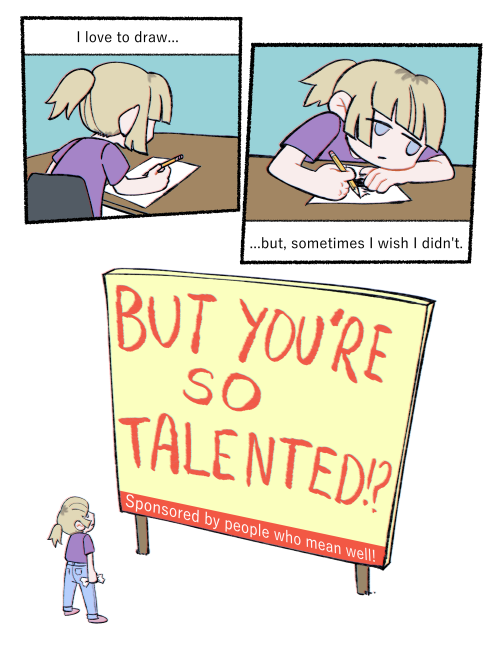
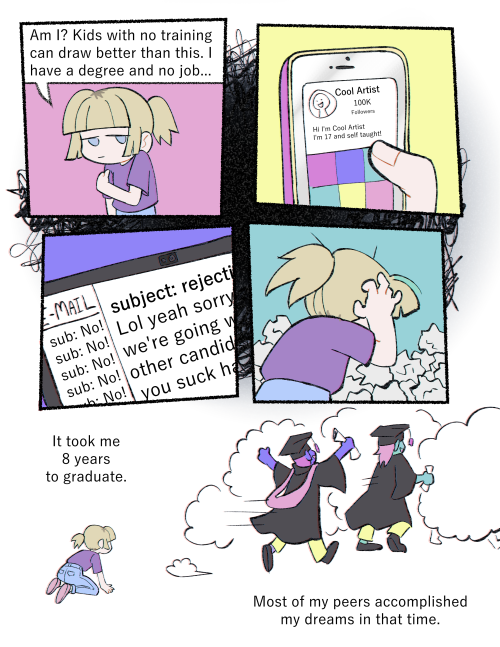
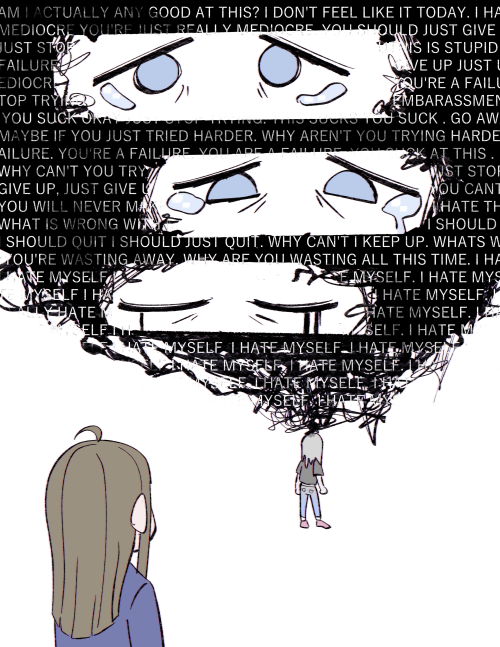
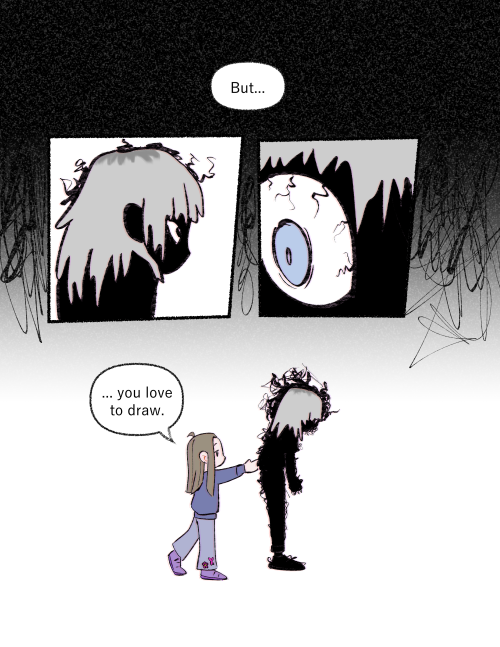
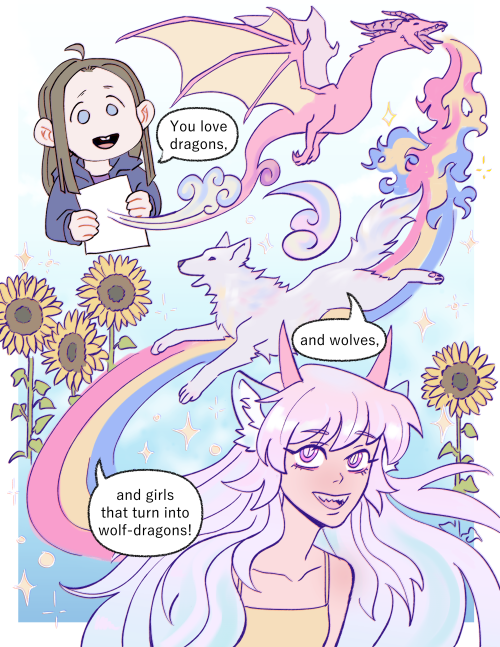
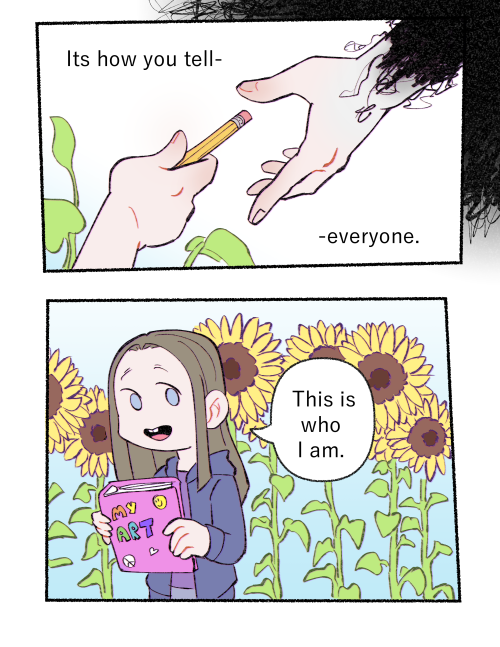

A comic to try and sort through some difficult feelings about being an artist and a reminder to not forget who you are.
things people do in real world dialogue:
• laugh at their own jokes
• don’t finish/say complete sentences
• interrupt a line of thought with a sudden new one
• say ‘uh’ between words when unsure
• accidentally blend multiple words together, and may start the sentence over again
• repeat filler words such as ‘like’ ‘literally’ ‘really’ ‘anyways’ and ‘i think’
• begin and/or end sentences with phrases such as ‘eh’ and ‘you know’, and may make those phrases into question form to get another’s input
• repeat words/phrases when in an excited state
• words fizzle out upon realizing no one is listening
• repeat themselves when others don’t understand what they’re saying, as well as to get their point across
• reply nonverbally such as hand gestures, facial expressions, random noises, movement, and even silence
A pretty cool list of questions for your characters. Personally, I've been doing this by having it in an interview style series of questions for my character, Ktangha.
The “What-If” Writing Method
Sometimes when I’m writing, brain just....stops. No more ideas. No more words. Nothing. Sometimes, the solution to this problem is to simply take a break from writing and let your brain relax. Other times, though, you really are just at a block for ideas. This happened to me significantly more often than I would like, but thankfully, I’ve developed a solution that works well for me, and it’s uncreativly titled the “what-if” method.
Get a piece of paper and pen. Or a Google doc, or whatever works best for you.
Start brainstorming questions about your story, or possible “what-if” scenarios. (Ex: What if my character got framed for a crime they didn’t commit?)
Write down every single idea that comes to your head. Even if it doesn’t really work for your story. Even ones that deviate from your existing plot. Even the stupid ones. Especially the stupidest ones.
Cross out the ideas you don’t like, circle the ones that you do like.
Start coming up with answers for the questions you circled, or expand in the by coming up with more questions. (Ex: They would have to prove they didn’t commit the crime to regain their freedom. How do they prove it?)
Repeat until you have a full idea that you can work on/write with.
That’s it. That’s the whole strategy. I’ve used this a million times, and it’s gotten me out of a million cases of writers block, so hopefully it can work well for you too! Happy writing!
how to stay motivated as a writer
reread your old writing
reread the scenes you’re most proud of
write something silly. it doesn’t need to be logical, or something you in your story. write something dumb
compare your old writing to your current writing. seeing how much you’ve improved can be very motivating
create AUs for your stories! explore storylines that otherwise never would make it into the story, but you would like to play around with
choose one of your least favorite scenes and rewrite it
act out your scenes
read old comments from people praising your work
create a playlist for your wip
team up with a friend, create AUs for each other’s stories
create playlists for your characters
draw your ocs/make memes of your ocs
draw/make memes of your friend’s ocs
don’t push yourself to get back into writing the thing that made you stop in the first place, you can always write something else!
write what you want to write, no matter how cliché it might be. it's okay
take a break, focus on another hobby of yours. consume other sources of media, or take a walk to clear your head
no need to write in chronological order if it isn’t working for you!
read bad reviews of books/movies/tv-shows. you will start appreciating your own writing more
create a new storyline, or introduce a new character! anything that helps bring something fresh into your story. could even be a completely new wip!
not writing every day doesn’t make you a bad writer. take a break if you feel like you need one
remind yourself to have fun. start writing and don’t focus too much of your attention on following ''the rules.'' you can get into the nitty-gritty when you're more familiarized with writing as an art. or don’t. it’s fiction, you make your own rules
get some rest. go to sleep, take a nap!
remember why you started. know that you deserve to tell the story you want to tell regardless of the skill you possess
how i got an agent, or: my writing timeline
when i started writing, i had no idea how publishing worked and i had a lot of misconceptions about it. but i just signed my first literary agent so i thought i’d share what my experience has been getting to this point, in case it helps anyone else with their own publication goals. i’m also including financial details, like submission fees and income, because “i could never afford to pursue writing as a career” is something that kept me from taking the idea seriously.
for context, i write mostly literary fiction and i’m on the academic/scholarly writing path. this process looks a lot different for other genres.
i didn’t write this in my pretty nonfiction narrative voice; it’s really just the bare-bones facts of how it went down, how long it took, how many words i wrote (both fanfiction and original fiction), and how much it all cost.
Afficher davantage
Character Development : A Collection of Resources

Patreon || Ko-Fi || Masterlist || Work In Progress
–
Resources
Resources For Creating Characters
Resources For Describing Characters
Resources For Writing The Mafia
Resources For Writing Royalty
Commentary on Social Issues In Writing
General Tips
Guide to Character Development
How To Fit Character Development Into Your Story
Tips on Character Consistency
Designing A Character From Scratch
Making characters for your world
Characters First, Story Second Method
Understanding Your Character
Tips on Character Motivations
31 Days of Character Development : May 2018 Writing Challenge
How To Analyze A Character
Alternative Method of Character Creation
Connecting To Your Own Characters
Interview As Your Characters
Flipping Character Traits On Their Head
Character Driven vs. Plot Driven Stories
Traits
Tips On Writing About Mental Illness
Giving Your Protagonists Negative Traits
Giving Characters Distinct Voices in Dialogue
Giving Characters Flaws
Making Characters More Unique
Keeping Characters Realistic
Archetypes
Writing Good Villains
Creating Villains
Guide to Writing The Hero
Positive Character Development Without Romanticizing Toxic Behavior
Tips on Writing Cold & Distant Characters
Balancing Multiple Main Characters
Creating Diverse Otherworld Characters
Foreshadowing The Villain
–
Masterlist | WIP Blog
If you enjoy my blog and wish for it to continue being updated frequently and for me to continue putting my energy toward answering your questions, please consider Buying Me A Coffee, or pledging your support on Patreon, where I offer early access and exclusive benefits for only $5/month.
Shoutout to my $15+ patron, Douglas S.!
-
 ultratypewriter reblogged this · 1 month ago
ultratypewriter reblogged this · 1 month ago -
 kappakurtz liked this · 2 months ago
kappakurtz liked this · 2 months ago -
 mataoreda liked this · 2 months ago
mataoreda liked this · 2 months ago -
 kieraniscoming liked this · 2 months ago
kieraniscoming liked this · 2 months ago -
 marstomercury liked this · 2 months ago
marstomercury liked this · 2 months ago -
 hammysdeathwish liked this · 2 months ago
hammysdeathwish liked this · 2 months ago -
 msilverstar liked this · 2 months ago
msilverstar liked this · 2 months ago -
 snowberriesromanoff reblogged this · 2 months ago
snowberriesromanoff reblogged this · 2 months ago -
 fruitcompote reblogged this · 2 months ago
fruitcompote reblogged this · 2 months ago -
 snowberriesromanoff liked this · 2 months ago
snowberriesromanoff liked this · 2 months ago -
 samcaprights reblogged this · 2 months ago
samcaprights reblogged this · 2 months ago -
 itsdrarrybaby reblogged this · 7 months ago
itsdrarrybaby reblogged this · 7 months ago -
 itsdrarrybaby liked this · 7 months ago
itsdrarrybaby liked this · 7 months ago -
 begpleadcrypray liked this · 1 year ago
begpleadcrypray liked this · 1 year ago -
 i-like-readin-things reblogged this · 2 years ago
i-like-readin-things reblogged this · 2 years ago -
 i-like-readin-things reblogged this · 2 years ago
i-like-readin-things reblogged this · 2 years ago -
 i-like-readin-things liked this · 2 years ago
i-like-readin-things liked this · 2 years ago -
 lucyisadragon reblogged this · 2 years ago
lucyisadragon reblogged this · 2 years ago -
 copper-peace liked this · 2 years ago
copper-peace liked this · 2 years ago -
 slaterflz liked this · 3 years ago
slaterflz liked this · 3 years ago -
 ender-baggins liked this · 3 years ago
ender-baggins liked this · 3 years ago -
 shade-vermillion reblogged this · 3 years ago
shade-vermillion reblogged this · 3 years ago -
 shade-vermillion liked this · 3 years ago
shade-vermillion liked this · 3 years ago -
 dreamer21-7 liked this · 3 years ago
dreamer21-7 liked this · 3 years ago -
 dont-you-fucking-dare reblogged this · 3 years ago
dont-you-fucking-dare reblogged this · 3 years ago -
 dont-you-fucking-dare liked this · 3 years ago
dont-you-fucking-dare liked this · 3 years ago -
 placeholderswitcheroo liked this · 3 years ago
placeholderswitcheroo liked this · 3 years ago -
 fruitcompote reblogged this · 3 years ago
fruitcompote reblogged this · 3 years ago -
 bucky-hues reblogged this · 3 years ago
bucky-hues reblogged this · 3 years ago -
 wallsarecrumbling liked this · 3 years ago
wallsarecrumbling liked this · 3 years ago -
 agentmika liked this · 3 years ago
agentmika liked this · 3 years ago -
 heybeanpod reblogged this · 3 years ago
heybeanpod reblogged this · 3 years ago -
 idealmayhem liked this · 3 years ago
idealmayhem liked this · 3 years ago -
 silverblue94 liked this · 3 years ago
silverblue94 liked this · 3 years ago -
 beatrice-otter reblogged this · 3 years ago
beatrice-otter reblogged this · 3 years ago -
 i-am-church-the-cat reblogged this · 3 years ago
i-am-church-the-cat reblogged this · 3 years ago -
 i-am-church-the-cat liked this · 3 years ago
i-am-church-the-cat liked this · 3 years ago -
 captainlovelyleniece reblogged this · 3 years ago
captainlovelyleniece reblogged this · 3 years ago -
 logicheartsoul liked this · 3 years ago
logicheartsoul liked this · 3 years ago -
 ghostinkissys liked this · 3 years ago
ghostinkissys liked this · 3 years ago -
 svgurl410 reblogged this · 3 years ago
svgurl410 reblogged this · 3 years ago -
 dawnlightgirl liked this · 3 years ago
dawnlightgirl liked this · 3 years ago -
 lilly111606 liked this · 3 years ago
lilly111606 liked this · 3 years ago -
 babydagger28 reblogged this · 3 years ago
babydagger28 reblogged this · 3 years ago -
 babydagger28 liked this · 3 years ago
babydagger28 liked this · 3 years ago -
 amber25gaja liked this · 3 years ago
amber25gaja liked this · 3 years ago -
 jennipanda23 liked this · 3 years ago
jennipanda23 liked this · 3 years ago
